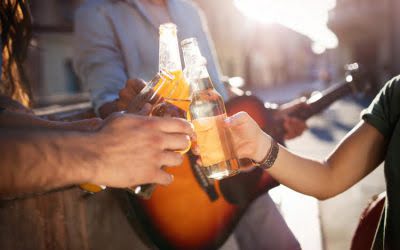Content
The best strategies mean nothing if you are not willing to commit to them and to work hard on sticking to them for your sobriety. It’s even a great idea to get assistance by introducing them to your closest friends and family for a solid base of support.
- The plan offers a course of action for responding to triggers and cravings.
- Drug or alcohol dependent people need to make an inventory of all the things in their home that remind them of their drug or alcohol use, and to remove or make those things inaccessible, if they want the best chance at staying sober.
- Be prepared to reveal the news to them and think about what steps you need to take to get back on the road to recovery.
- Things to include in your plan are triggers, cravings, coping tools and support group information.
But they can be stressful issues, and, if tackled too soon, clients may not have the necessary coping skills to handle them, which may lead to relapse. One of the important tasks of therapy is to help individuals redefine fun. Clinical experience has shown that when clients are under stress, they tend to glamorize their past use and think about it longingly. They start to think that recovery is hard work and addiction was fun.
Helping Patients: Ten Clinical Relapse Prevention Strategies
Alan Marlatt, and outlined in the 1985 text published with Judith Gordon, RP is based not only on Cognitive Behavioral Therapy for other psychiatric disorders, but also on Albert Bandura’s Social Cognitive Theory . Substance use has become the predominant coping response to meeting life’s challenges. Consequently, individuals with a substance use disorder cannot stop using because they lack the skills needed to cope with these challenges. The key to initiating and sustaining abstinence – that is, preventing relapse – is to develop https://ecosoberhouse.com/ a range of skills to cope with anticipated and potentially unforeseen challenges. Then, the patient and clinician work to develop strategies, including cognitive and behavioral , to address those specific high-risk situations. With more effective coping, the patient develops increased confidence to handle challenging situations without alcohol and other drugs (i.e., increased self-efficacy). Whenever feeling a craving to use, or in general feeling anxious or “off,” ask yourself if you are feeling any of these symptoms.
- Other relapse prevention techniques are more useful as someone prepares to discharge from residential treatment.
- Examples of high-risk contexts include emotional or cognitive states (e.g., negative affect, diminished self-efficacy), environmental contingencies (e.g., conditioned drug cues), or physiological states (e.g., acute withdrawal).
- You can develop strategies that you’ll use if you do relapse to get back on track as quickly as possible.
- Through advanced planning, individuals can prevent a relapse from happening.
It is remarkable how many people have relapsed this way 5, 10, or 15 years after recovery. A missing piece of the puzzle for many clients is understanding the difference between selfishness and self-care. Clinical experience has shown that addicted individuals typically take less than they need, and, as a result, they become exhausted or resentful and turn to their addiction to relax or escape. Part of challenging addictive thinking is to encourage clients to see that they cannot be good to others if they are first not good to themselves. 5) People think that they have a better understanding of drugs and alcohol and, therefore, think they should be able to control a relapse or avoid the negative consequences. The tasks of this stage can be summarized as improved physical and emotional self-care.
How to Replace Unhealthy Behaviors with Better Coping Habits
Oftentimes being hungry, angry, lonely, or tired can trigger a desire to use , and therefore its important to identify hunger, anger, loneliness, or tiredness and address the underlying need instead of using a substance. To establish a solid recovery foundation, it is important to engage in positive, fulfilling activities, while minimizing the impact of draining or negative activities in daily life. Education not only challenges you and allows you to learn new things, it can also advance your career and financial situation. You may also consider advancement within the recovery industry. Parties and events where people are drinking are also tough to endure, especially in the early months of recovery. “These are people and places that you may want to avoid or set boundaries with, and be prepared for when you do encounter them,” Sternlicht says. Withdrawal is a tough obstacle in overcoming opiate addiction, but you can get through it.

Addiction relapse begins before the actual act of drinking or using drugs again happens. When you stop your self-care, don’t exercise, don’t go to your meetings or skip other daily commitments to yourself, you have already mentally relapsed. When you allow yourself to think about substances or relapse prevention your past, even if it is to convince yourself not to do it again, you have emotionally relapsed. Mental and emotional relapses precede the physical relapse, so it is important to guard your recovery vigilantly. Whatever techniques you may have learned in treatment, you can never know too many.


0 Comments